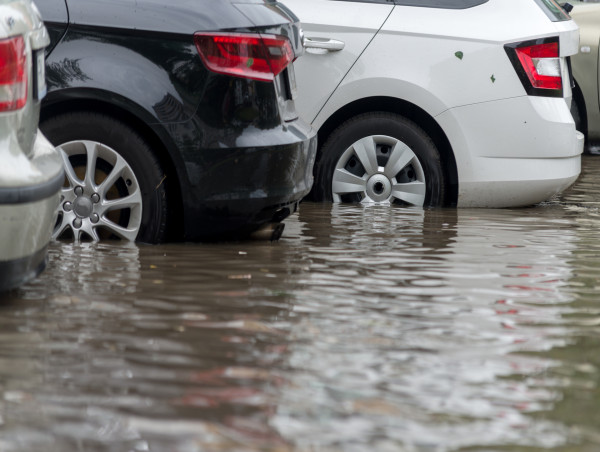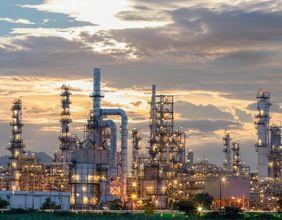William P. Morrow, a lawyer at Morrow Law Firm in Opelousas, Louisiana, discusses the steps vehicle owners should take following a natural disaster and the legal considerations involved. The firm, led by William P. Morrow, John Michael Morrow, Jr., and Stephen M. Morrow, has extensive experience addressing issues that arise in the wake of natural disasters.
“Natural disasters create unique challenges for vehicle owners,” says Morrow. “Understanding the legal procedures and insurance processes is essential for protecting property and securing compensation.”
Assessing Damage and Documenting Losses
The first step for vehicle owners after a natural disaster is to assess the extent of the damage. Documentation is critical for both insurance claims and potential legal proceedings.
Photographic Evidence: Take clear, detailed photographs of the vehicle’s damage, including exterior and interior areas. Capture images of flood lines, dents, shattered windows, or any other visible signs of destruction.
Retain Repair Estimates: Obtain professional estimates from certified mechanics or repair shops to determine the cost of restoring the vehicle.
Secure Weather Reports: Document the details of the disaster, such as the date, type of event, and geographic impact. This information can support claims by establishing the connection between the disaster and the damage.
Filing Insurance Claims
Comprehensive auto insurance policies generally cover damage caused by natural disasters, including hurricanes, floods, and hailstorms. The process of filing a claim involves several key steps:
Notify the Insurance Provider Promptly: Inform the insurance company of the damage as soon as possible. Delays in reporting may complicate the claim or lead to denial.
Provide Supporting Documentation: Submit all evidence collected, including photographs, repair estimates, and any other relevant records. Clear and organized documentation strengthens the claim and reduces processing delays.
Understand Policy Limits and Deductibles: Review the terms of the comprehensive coverage, including any exclusions or caps on payouts. Some policies may exclude damage caused by specific natural disasters, such as flooding, unless additional coverage is purchased.
Cooperate with Adjusters: Work with the insurance adjuster to evaluate the damage. Be prepared to answer questions and provide additional information if requested.
Legal Considerations in Vehicle Damage Cases
While insurance is the primary avenue for addressing vehicle damage caused by natural disasters, legal issues may arise if claims are denied or if third-party liability is involved. Common scenarios include:
Denied or Delayed Insurance Claims
Insurance companies may dispute claims on the grounds that the damage was pre-existing, caused by negligence, or excluded under the policy. When disputes arise, vehicle owners have legal recourse, including:
Filing an appeal with the insurance company.
Requesting mediation or arbitration to resolve the dispute.
Pursuing legal action for breach of contract if the insurer fails to honor a valid claim.
Liability of Third Parties
In some cases, a third party may bear partial responsibility for the damage. For example, if a vehicle is damaged due to the collapse of a poorly maintained structure during a storm, the property owner may be held liable. Legal claims in these situations often involve proving negligence or failure to maintain safe conditions.
Louisiana’s Legal Framework for Disaster-Related Claims
Louisiana law imposes specific requirements and deadlines for filing claims related to natural disasters. Key considerations include:
Insurance Reporting Deadlines: Most insurance policies require prompt notification of claims, often within a specific time frame. Failing to meet these deadlines can result in denial of coverage.
Statutes of Limitations: Vehicle owners seeking legal remedies must adhere to the state’s statutes of limitations. Claims for property damage generally have a one-year deadline from the date of the incident.
Force Majeure Provisions: In some cases, contracts or agreements may include force majeure clauses that excuse certain parties from liability due to natural disasters. Understanding how these provisions apply is crucial when pursuing third-party claims.
Preventive Measures and Insurance Recommendations
While natural disasters are unpredictable, vehicle owners can take steps to minimize risks and ensure adequate coverage:
Purchase Comprehensive Insurance: Comprehensive policies are essential for covering disaster-related damage, including floods, hurricanes, and hail. Policyholders should review their coverage annually and consider adding endorsements for additional protection.
Park in Safe Locations: During storm warnings, park vehicles on higher ground or in enclosed spaces to reduce exposure to flooding and debris.
Document Vehicle Condition: Regularly update records of the vehicle’s condition, including photographs and maintenance logs. These records can serve as evidence in the event of a dispute.
Conclusion
Vehicles damaged by natural disasters present unique challenges for owners in Louisiana. Navigating insurance claims and legal procedures requires a clear understanding of rights, responsibilities, and available remedies. By acting promptly, documenting evidence, and seeking professional guidance when necessary, vehicle owners can protect their property and ensure fair compensation.
William P. Morrow emphasizes that preparation and awareness are key to managing the impact of natural disasters. Whether addressing insurance disputes or pursuing legal claims, taking informed and timely action is critical to achieving a favorable outcome.
Morgan Thomas
Rhino Digital, LLC
+1 504-875-5036
email us here
Visit us on social media:
Facebook
Legal Disclaimer:
EIN Presswire provides this news content "as is" without warranty of any kind. We do not accept any responsibility or liability for the accuracy, content, images, videos, licenses, completeness, legality, or reliability of the information contained in this article. If you have any complaints or copyright issues related to this article, kindly contact the author above.
![]()






